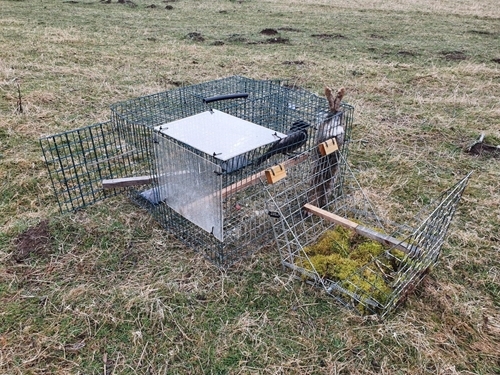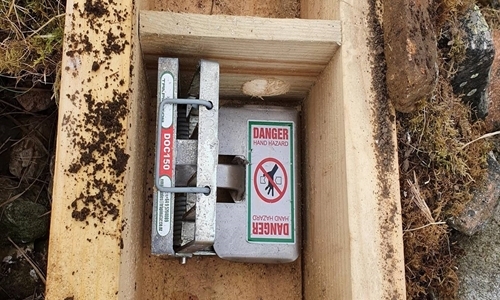Habitat, food and predator control are key components to gamebird management for any shoot, wild or reared. We call this the three-legged stool approach; shortfalls in one leg or more can result in significant disappointment.
Whilst habitat creation and management are fundamental to an environment rich in game and wildlife, it is the implementation of targeted, legal and humane predation control programmes that places the foot on the throttle for game and wildlife to thrive at their optimal best.

Predation control must adhere to all animal welfare legislation if it is to be fully defensible.
Since the 1980s, the GWCT has published over 150 papers considering the effects of predation. This research shows that predation can be a common factor limiting the breeding success of many species in the UK, particularly ground-dwelling birds with limited habitat extent, quality and connectivity. The implications for conservation and investment in sporting management are clear. High predation pressure can halt sustainable driven wild game shooting and, by extension, prevent the recovery of declining species of conservation concern such as black grouse and curlew.
The value of predator control is now widely recognised by policymakers and practitioners in a variety of fields. Predator control is practised not just by farmers and gamekeepers on private land but on a wide range of designated sites and nature reserves around the country – sometimes supported by public funding.
Nonetheless, the subject of predator control can be charged with emotion and often misguided opinion. This has put ever greater scrutiny on practitioners; there is no place for poor practice. The game sector prides itself in being able to demonstrate best practice to ensure that predator control remains a legitimate conservation tool. There are sector-led codes of practice in place and the GWCT is recognised for up-to-date training on all aspects of humane predator control. Each of our courses involve attendees sitting a test, with success rewarded through the issue of a certificate. These documents provide farms, estates and individuals with an important paper trail that helps demonstrate ongoing due diligence and best practice as recommended following the introduction of the Wildlife & Natural Environment (Scotland) Act 2011.

Trap operators must work within the legal framework. GWCT best
practice courses provide all the up-to-date information you need.
Our professional advisors are also increasingly asked to provide tailored advice to estates on best practice predator control. An outside, well-trained eye can make the world of difference on how far the best practice bar can be raised. At this time of year, we are extremely busy undertaking comprehensive reviews of spring trapping, snaring and corvid control techniques across Scotland to help identify any possible shortfalls in legal aspects as well as ensuring that trap operator actions are fully humane and conform to current animal welfare legislation. Adherence to recommendations presented in inspection reports help demonstrate that the farm or estate has undertaken all reasonable steps to ensure no wildlife crime is committed and can help provide a defence against any alleged illegal practice and a possible vicarious liability charge.
With people now spending more recreational hours connecting with land managed for gamebirds and sporting activities than ever before, combined with increasing social media output, it has never been more important that targeted predator control is discreet, trusted and fully defensible. Diligent predator control programmes can deliver significant public good, but any noise emanating from poor implementation will only serve to frustrate the positive progress currently being made by the game management sector.
For further details on the GWCT’s Advisory Services in Scotland, including best practice courses and tailored, on-site game and shoot management visits, please contact scottishhq@gwct.org.uk or telephone 0131 202 7670.